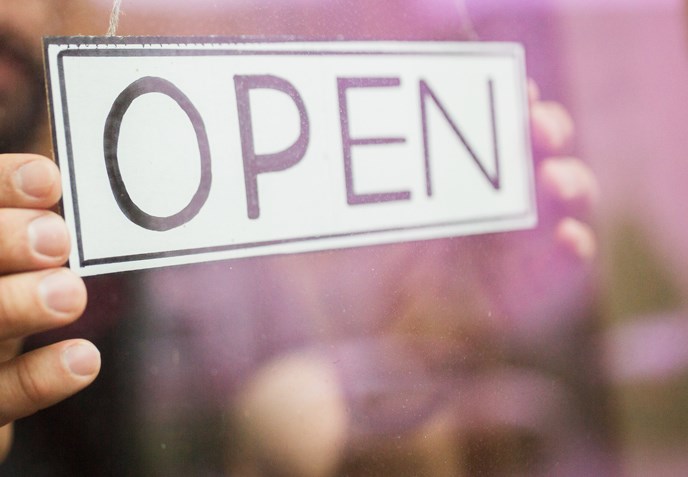Small business owners in Sundre are dipping into profits and working more hours themselves, among other strategies, in order to pay staff the new $15 an hour minimum wage.
On Oct. 1, the province’s minimum wage of $13.60 increased by $1.40.
For many owners, finding the extra money means less sustainable businesses, longer working hours, and the largely untenable possibilities of cutting staff, or if they think the market will bear it, increasing prices.
The restaurant business is not one to be able to recoup market fluctuations -- increased input costs such as wages -- from increasing meal prices quick enough said Original T’s owner Chris Vardas.
“In my business, the restaurant business, it’s a little hard to do that because of the fact we’ve got menus printed up. It costs us a lot of money to print them. In other words, in order to keep up to the market pricing out there and the way it fluctuates, we would have to change our menu prices every three months to every six months.”
And that’s a situation Vardas said restaurant patrons currently are not accustomed to and most likely would not have an appetite for.
“I’d lose all my patrons,” he said.
Instead Vardas decided to start paying the wage increase during the busier times in August to help cushion the blow for the slower winter months.
He said he’s now working 15 hours a day and if the bottom line gets even tighter, he may have to cut staff.
“Which at the same time I don’t want to do because they’re depending on this as their survival as well,” he said.
An increase to meal prices is inevitable, he said, adding “customers all over are just going to have to get used to it.”
OutWest Truck and Car Wash owner Colleen Prail said right now, her business’s bottom line is going to absorb the increase.
“But the more lower you go in the hole, obviously at some point you say we’re not going to catch up. Our business, we live for the good days. So on the good days, they make up for all those bad days,” she said.
Cutting staff is not an option, she said. To ensure their safety, Prail staffs two people every shift so no one is working alone.
But because of the nature of the business, the wage hike means her minimum wage staff will be getting more for working less at times.
“We’re a business like the weather. Sometimes it rains and sometimes it’s dry. And when it’s raining it’s dead in here and there’s no one. And I’m paying two staff who aren’t really going to have that much to do and now I’ll be paying them $30,” she said. “How do I shell out $30 an hour when we’re not making $10?”
She has minimum wage staff, but said as a general rule, she pays better for those who work hard.
“If you’re a hard worker I don’t want you to make minimum wage. I want you to make more than that and I want you to feel valued and I want you to feel appreciated and I want you to be motivated to stay, so I pay more."
But bringing minimum wage up to $15 for people that may “just hold up a counter” when motivated workers are already making a similar amount is a disincentive, she said, as well as hard to rationalize on the books.
“The higher paying staff see junior people that aren’t doing as much as them, getting closer and closer to their wage and they’re feeling that my wage should be going up with it,” she said. “So I’ve already made those adjustments but I mean it really makes it hard to pay based on performance.”
Vardas too felt compelled to adjust his higher wage earners’ pay to keep things equitable.
“For example, someone making $20, $21 an hour, if I give a buck forty to everyone else I’m going to give them a buck forty too. Because with skilled workers, if you’ve got minimum wage coming closer to skilled worker wage they’re not going to be happy.”
Before the increase came into place, the provincial government noted that about 254,000 people, or about 11 per cent of employees in Alberta, earned less than $15 an hour.



